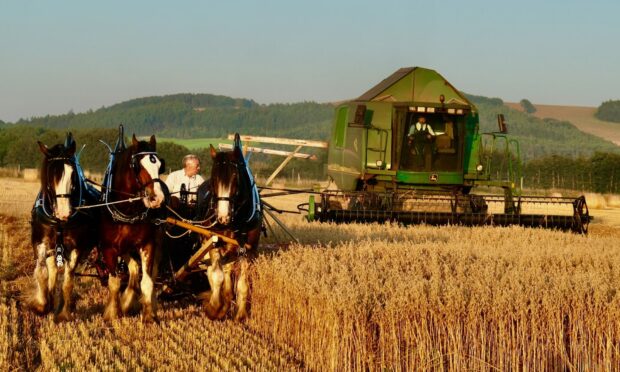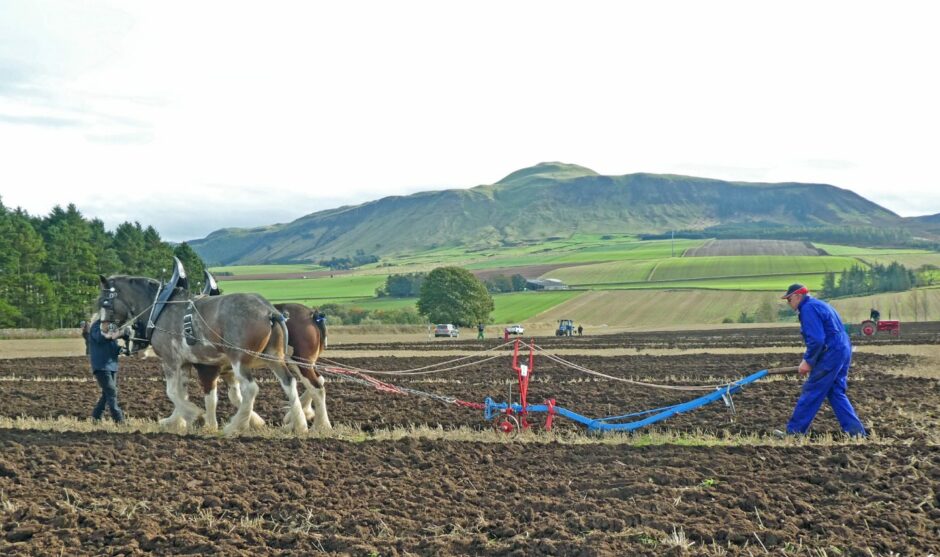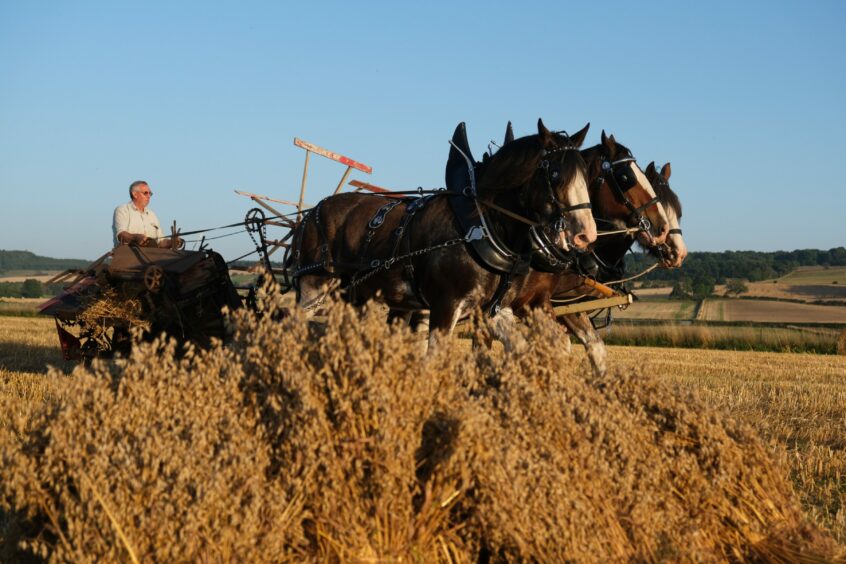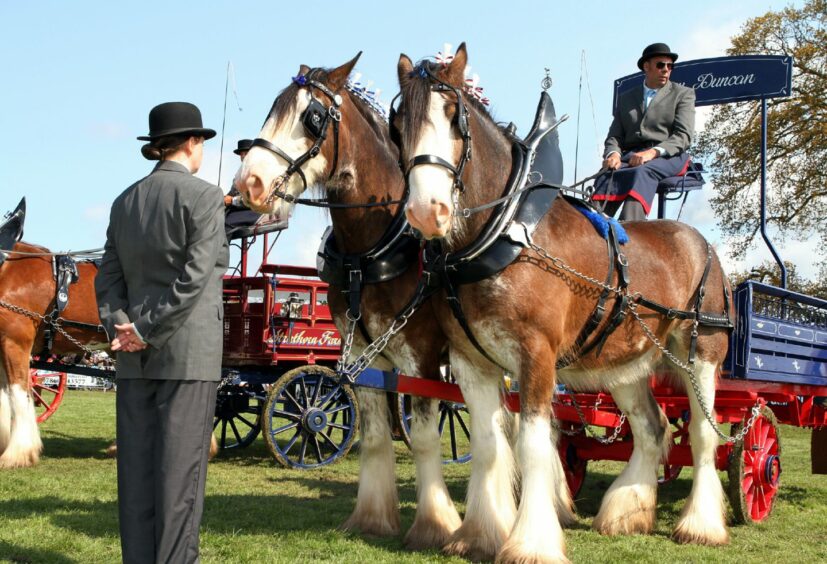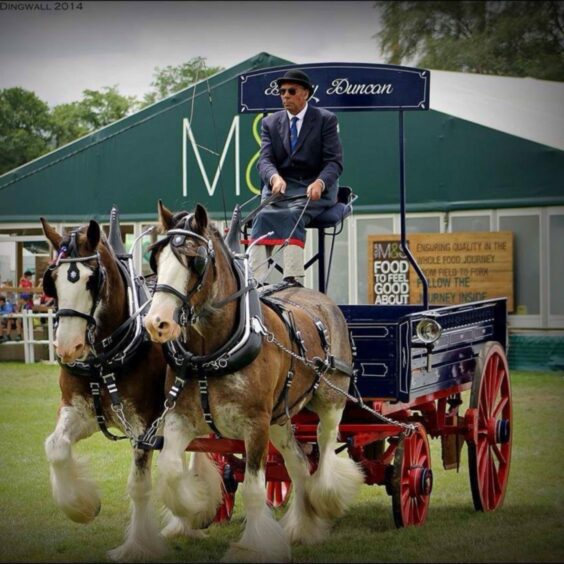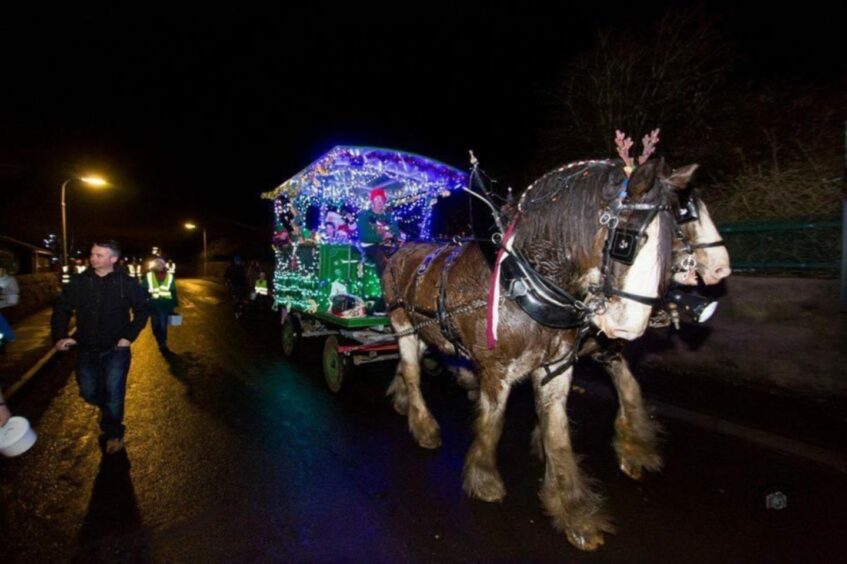If farming skills from the working horse era are going to pass to another generation, it will be thanks to a handful of men like Benny Duncan.
The number of folk who know how to yoke a Clydesdale, train horses to pull a plough or master the convoluted canvasses in a binder is dwindling, but Benny has spent the last few decades demonstrating all he knows in the hope the ancient ways aren’t lost forever.
That means there’s barely a weekend during the winter months he’s not out braving the weather in a stubble field somewhere in central Scotland, ploughing with his stalwarts, Jackson and Davie.
Benny and his Clydesdales are central to most heavy horse working days across the country.
They’ve worked at the Beamish living museum in County Durham and demonstrated at Hay heavy horse farm in Northumberland as well as the Scottish Museum of Country Life at East Kilbride.
They were also at the heart of the British Horse Society’s heavy horse working days at Collessie in Fife and the Celebration of Clydesdales at the Royal Highland Show in 2019.
Scattered around Benny’s workshop on the edge of a field near Balmalcolm village are a collection of farm implements in various states of repair, including “about half a dozen” ploughs from the 1940s, carts, a dray, and two binders, one of which was given to him after lying abandoned on a farm near Newburgh for 50 years.
When Benny started work on a Fife farm in the 1960s, the tractor had already made Clydesdales obsolete, but many of the implements he used in those days had been converted from the horse-drawn era.
“Back then we weren’t interested in horses, as all we wanted to do was sit on tractors,” he admits.
“But we learned a lot about how the binders and other machinery worked, so many of the old, rusting implements I come across today are familiar.
“If we don’t keep these old ways going and try to encourage younger folk to get involved, in a few years’ time there’s going to be nobody able to even hitch into a machine.”
The relatively recent fashion for ridden Clydesdales has done a lot to revive interest in the breed, and Benny’s granddaughter, Blythe, 13, is already an accomplished rider and a key member of his team.
The horses may have a serious educational and cultural purpose, but Benny says the animals are also happiest when they’re working.
“They love all the attention they attract, and you know they’re enjoying themselves when they’re trotting along, snorting away,” he says.
“When we’ve been away and we’re unloading them from the lorry, the other horses will come up the ramp to meet them, curious to know where they’ve been.”
Benny’s top horse team of Davie, Geordie and Jackson came into their own towards the end of this year’s harvest when Fife Show’s organising committee began preparations for next year’s 200th anniversary event by pitting the horses and binder against a modern combine in a race across the field.
Benny relished the challenge.
“The binder and combine were about 20 feet apart at one point, side-by-side, letting folk see how the harvest was done in the old days, before the new machines came on to the scene.
“And we got to the end of the field first!
“But the great thing about these working events is seeing everyone enjoying themselves, watching the kids running round the field and getting stuck in and throwing sheaves – and being told by other old boys how I’m doing things wrong.”
It’s not all field and farm work for Benny’s Clydesdales, though, as they are popular at weddings and often hired for rural funerals, to pull a dray with the coffin aboard.
And at this time of year they are usually out in their finery in local villages, the dray decked out with fairy lights and blaring out Christmas music, with Santa and Mrs Claus aboard and kids running alongside collecting for charity.
Benny is hopeful the tradition can be resurrected next year, which is already shaping up to be a landmark one for the breed with the World Clydesdale Show scheduled to take place in Aberdeen in October.
Around 200 horses are expected to gather from around the globe, and static displays of vintage farm machinery will give the breed’s dedicated enthusiasts an opportunity to spread the word.
